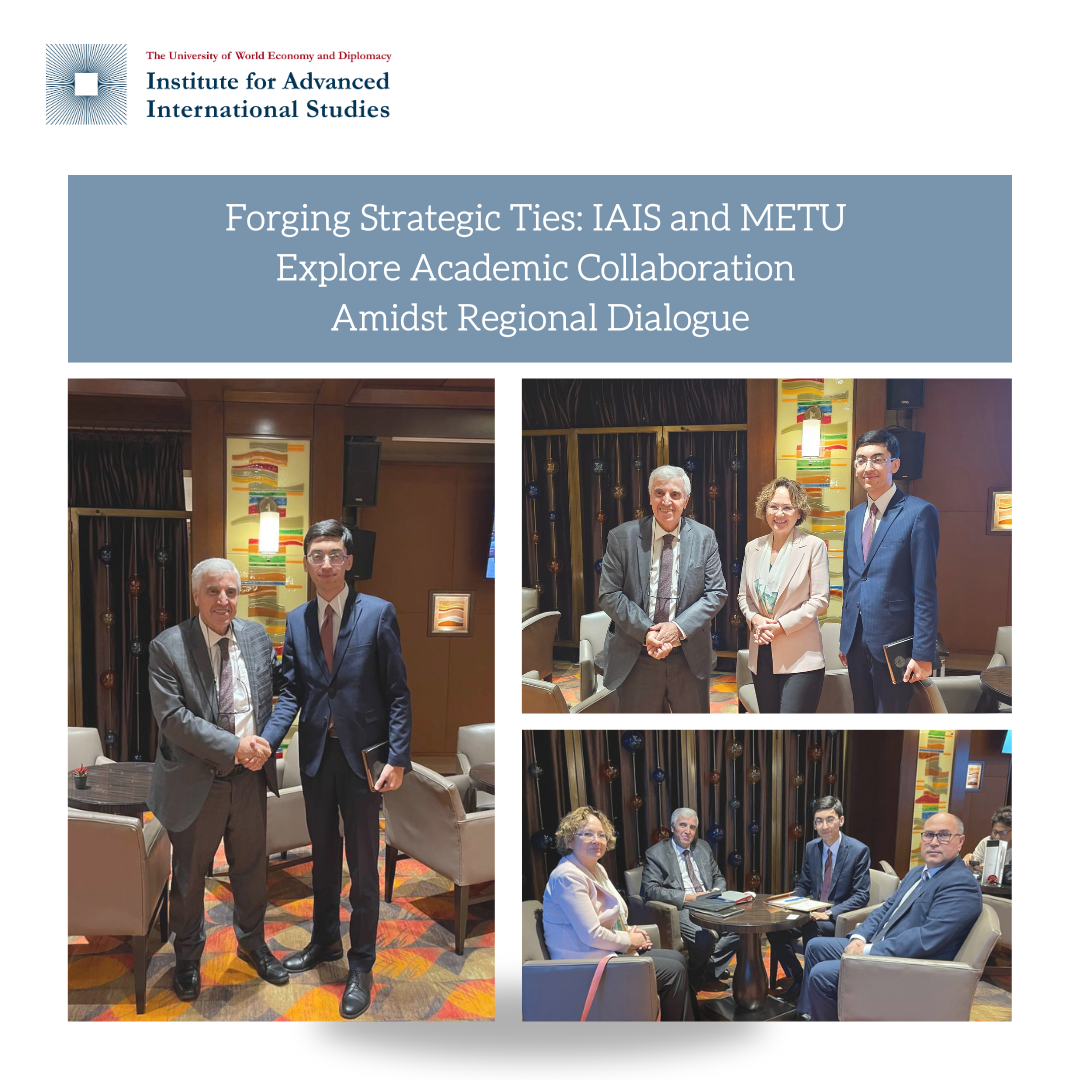
During his working visit to Ankara, Fazliddin Djamalov, Leading Research Fellow at the IAIS Centre for American Studies, engaged in a discussion with Professor Hüseyin Bağcı, Advisor to the Rector of the Middle East Technical University (METU) and Co-founder of the global consultancy group Ankura, and Gülsüm Akbulut, the network’s Executive Director. This meeting, held on 31 October, explored a range of strategic topics spanning the Middle East and Central Asia, regional economic corridors, and foreign policy, ultimately leading to a prospective agreement for deeper academic collaboration.
Background on METU: Known as Turkey’s premier technical university, METU stands as a beacon of scientific innovation and educational excellence in fields ranging from social sciences and engineering to natural sciences. With campuses in Ankara, Northern Cyprus, and Mersin, METU maintains an impressive alumni base of over 120,000 graduates globally, and English is the primary language of instruction, reflecting its international academic outlook.
Professor Bağcı opened the conversation by presenting an overview of the Middle East’s current geopolitical climate, examining Turkey’s evolving role within the region. He discussed recent political shifts and emerging alliances, highlighting the complex interplay of interests that shape Turkey’s influence.
In response to questions from Mr. Djamalov, Ms. Akbulut provided insights into the Middle Corridor initiative, a central piece of Turkey’s vision for enhancing trade and transit between Europe and Central Asia. She highlighted how the Middle Corridor holds transformative potential not only for Turkey but also for Central Asia, where it could open new avenues for economic integration and regional connectivity.
Turkish analysts further expanded on Ankara’s foreign policy objectives in Central Asia, detailing how Turkey has sought to cultivate closer ties with nations in the region by focusing on economic partnerships, cultural exchange, and security cooperation. The analysts noted that Turkey views Central Asia as a region with shared cultural and historical ties, making it a priority for fostering mutual understanding and developmental collaboration.
Concluding the discussions, the parties explored the possibility of initiating a formal academic partnership between METU and the IAIS. They expressed a mutual commitment to fostering joint research projects and practical initiatives that could enhance expertise sharing between their institutions. Such collaboration, they agreed, could serve as a platform for interdisciplinary research in areas ranging from international relations and regional security to economic development. The planned initiatives aim to expand METU’s international outreach while providing IAIS with a valuable partner in Turkey, enhancing both institutions’ research capabilities and reinforcing their networks in Central Asia.
IAIS expresses its gratitude to the Embassy of Uzbekistan in Ankara for its invaluable assistance in facilitating this meeting. This support was instrumental in fostering the productive exchange of ideas and establishing a promising foundation for future cooperation.